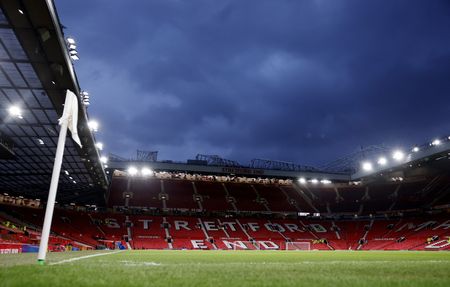By Aditya Soni
(Reuters) -Microsoft has scrapped leases for sizeable data center capacity in the U.S., suggesting a potential oversupply at the tech giant as it builds out artificial intelligence infrastructure to meet a potential demand surge, TD Cowen analysts said.
Skepticism has been growing among investors over the billions of dollars U.S. tech firms have been channeling into AI infrastructure due to slow payoffs and breakthroughs at Chinese startup DeepSeek, which has showcased AI tech on par with or even better than its Western rivals at a fraction of the cost.
Redmond, Washington-based Microsoft has canceled leases totaling “a couple of hundred megawatts” of capacity with at least two private data-center operators, the analysts led by Michael Elias said, citing supply chain checks.
Microsoft has also paused converting statement of qualifications, or precursors to formal leases, the analysts added, saying other tech firms including Meta Platforms had previously made similar moves to lower capital spending.
The note was published late on Friday but it picked up traction on social media platforms over the weekend, with several media outlets covering the development on Monday.
Microsoft, the main backer of ChatGPT-maker OpenAI, did not immediately respond to a request for comment on Monday.
Brokerage Jefferies, currently hosting the Microsoft investor relations team in Sydney, said the company has strongly denied any change to its data center plans.
The company’s shares, which underperformed most Big Tech stocks last year, fell about 1.8% in early U.S. trading.
Any lease cancellations would mark a sharp shift for a company that months ago earmarked $80 billion in capital spending for this fiscal year, mostly for AI. Microsoft has called the spending crucial to easing supply bottlenecks that limit its ability to meet AI demand.
The news could possibly indicate lower demand, Bernstein analyst Mark Moelder said, especially after lackluster quarterly results from major cloud companies, but it was also reflective of the capacity build-up at Microsoft in the past years.
“Microsoft needed to meet demand and had a great deal of difficulty finding capacity. Management may, therefore, have rented, even at a meaningful premium, data centers and GPU capacity and negotiated more deals for additional future capacity than they needed,” Moelder said.
(Reporting by Aditya Soni in Bengaluru; Editing by Sriraj Kalluvila)









